Difficult Children
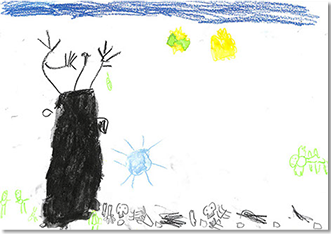

Home | Areas of Application
Difficult children or adolescents can unsettle the most experienced parents or teachers. Children functioning under the influence of negative emotions are often provocative, stubborn, insolent, aggressive and impulsive.
In order to help these children/adolescents break negative patterns, we must examine their temperament to determine the root cause of their difficulties. Doing so will help to avoid triggering inappropriate or destructive behavior when facing conflict.
A more comprehensive understanding of these children is helpful in providing support for parents, schools and health professionals by offering insightful solutions for change.
Having a deeper understanding of what motivates these children to "act out" helps us determine whether a therapeutic and/or drug treatment is the best course of action.
With or without challenges, all children have in common the need to get to know themselves, to better understand the outside world, to understand others and to experience enriching relationships.
It is important not to minimize the adverse health impact of these behavioral problems. Recent studies have shown that children under the dominant influence of negative emotions are more likely to develop mental health problems in later life. In our attempts to improve aberrant behavior, we must take care not to identify the children with their inappropriate behavior.
Regardless of the cause, making the most of the enormous creative potential these children hold is an excellent starting point to help them adjust and improve their negative behavior.
CAP offer services to facilitate change in children and adolescents who are struggling with behavioral challenges, developmental milestones and psychological instability.
During childhood and adolescence many youths have a difficult time understanding their feelings and being able to verbally communicate their emotions. The frustration felt can often turn into anger, high-risk behavior, shyness or lack of confidence.
Listening to music and expressing their feeling through drawing is a safe and a meaningful way for children to connect with their inner essence and creativity. Often this process helps them to discover their gifts and talents for coping with the challenges of life creatively.
CAP is a way to help our youths to experience a better life and to free themselves from burdensome emotional baggage.
The CAP method also offers a way for parents to discover unknown attributes of their child. The comprehensive CAP assessment provides parents with valuable information that enables them to grow into a more conscious parent.
Therefore, CAP enables children and teens to:
See how Alex, age 6, resolved his tears and fears in school.
Jacque - Life Oasis Director
Teddy's parents divorced two years ago, and his custody was entrusted to his mother. The child missed his father's presence and was not able to spend as much time with him as he desired.
After the divorce, Teddy was often angry, cried a lot, had trouble relating with others and, whenever he needed to face a new situation, would always say: "You're asking too much of me, it's too hard."
His mother decided to enroll Teddy in the CAP program because she felt that her little boy was unhappy and the negative emotions he was experiencing was holding him back. She was also concerned about Teddy's lack of concentration and his teachers' concerns about the challenges he was having in learning how to write.
By participating in the CAP program, Teddy's true potential was revealed. The child's drawings helped his parents understand him better by bringing his vibrancy and creativity to light. The CAP process also motivated Teddy's father to be more present and take a more responsible role in his son's life.
Shared custody has helped Teddy better cope with life challenges. Today, he is a very intelligent, sensitive little boy who is open to new ideas and experiences. He communicates well, plays with others, makes friends easily and gets good grades at school. He is proud to help his little brother with his schoolwork!
TEDx Limoges France
Keynote Presentation
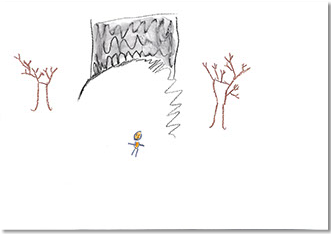
Reference Drawing #1
without music

Drawing #1
with music
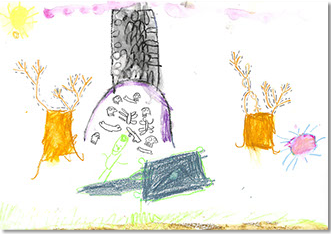
Drawing #2
with music
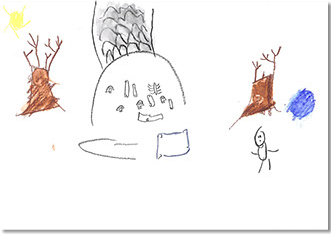
Drawing #3
with music
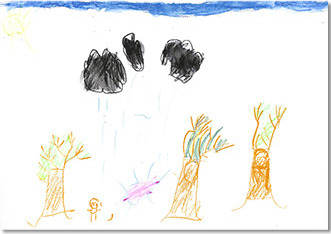
Drawing #4
with music
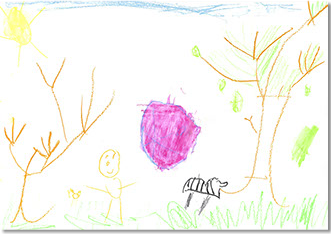
Drawing #5
with music
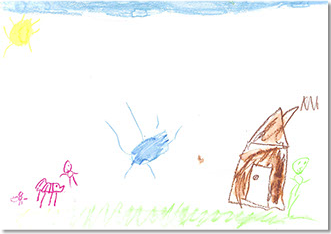
Drawing #6
with music
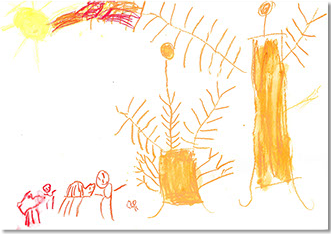
Drawing #7
with music
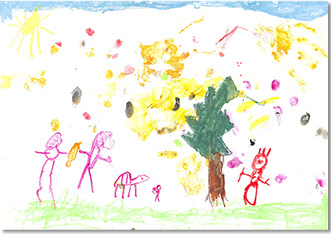
Drawing #8
with music
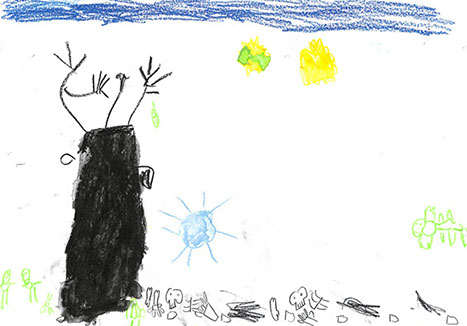
Drawing #9
with music
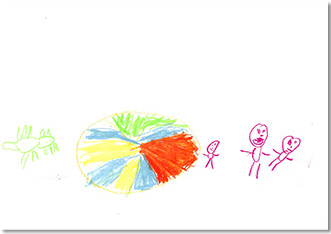
Drawing #10
with music
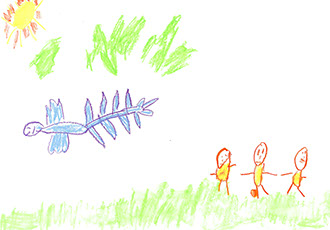
Reference Drawing #2
without music